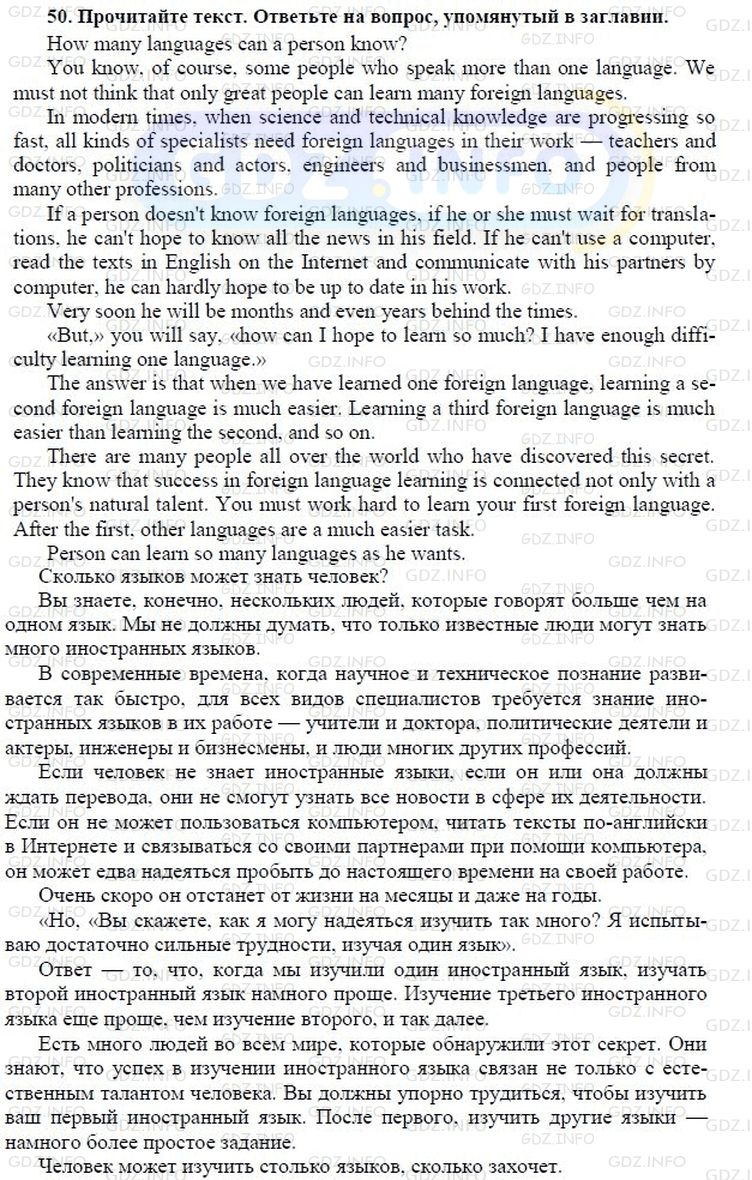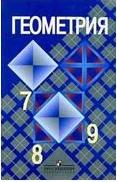Ваше сообщение отправлено
и скоро будет рассмотрено
Ответ на Sections №50, Unit 2 из ГДЗ по Английскому языку 7 класс: Биболетова (Учебник Enjoy)
ГДЗ (готовое домашние задание из решебника) по Английскому языку 7 класса авторов М.З. Биболетова, Н.Н. Трубанева, 2008-2019г. на Sections №50, Unit 2. Meet the Winners of the International Teenagers' Comptetition.
Условие
Read the text. Answer the question given in the title.
How many languages can a person know?
You know, of course, some people who speak more than one language. We must not think that only great people can learn many foreign languages.
In modern times, when science and technical knowledge are progressing so fast, all kinds of specialists need foreign languages in their work— teachers and doctors, politicians and actors, engineers and businessmen, and people of many other professions.
If a person doesn’t know foreign languages, if he or she must wait for translations, he can’t hope to know all the news in his field. If he can’t use a computer, read the texts in English on the Internet and communicate with his partners by computer, he can hardly hope to be up to date in his work.
Very soon he will be months and even years behind the times.
“But,” you will say, “how can I hope to learn so much? I have enough difficulty learning one language.”
The answer is that when we have learned one foreign language, learning a second foreign language is much easier. Learning a third foreign language is much easier than learning the second, and so on.
There are many people all over the world who have discovered this secret. They know that success in foreign language learning is connected not only with a person’s natural talent. You must work hard to learn your first foreign language. After the first, other languages are a much easier task.
How many languages can a person know?
You know, of course, some people who speak more than one language. We must not think that only great people can learn many foreign languages.
In modern times, when science and technical knowledge are progressing so fast, all kinds of specialists need foreign languages in their work— teachers and doctors, politicians and actors, engineers and businessmen, and people of many other professions.
If a person doesn’t know foreign languages, if he or she must wait for translations, he can’t hope to know all the news in his field. If he can’t use a computer, read the texts in English on the Internet and communicate with his partners by computer, he can hardly hope to be up to date in his work.
Very soon he will be months and even years behind the times.
“But,” you will say, “how can I hope to learn so much? I have enough difficulty learning one language.”
The answer is that when we have learned one foreign language, learning a second foreign language is much easier. Learning a third foreign language is much easier than learning the second, and so on.
There are many people all over the world who have discovered this secret. They know that success in foreign language learning is connected not only with a person’s natural talent. You must work hard to learn your first foreign language. After the first, other languages are a much easier task.









